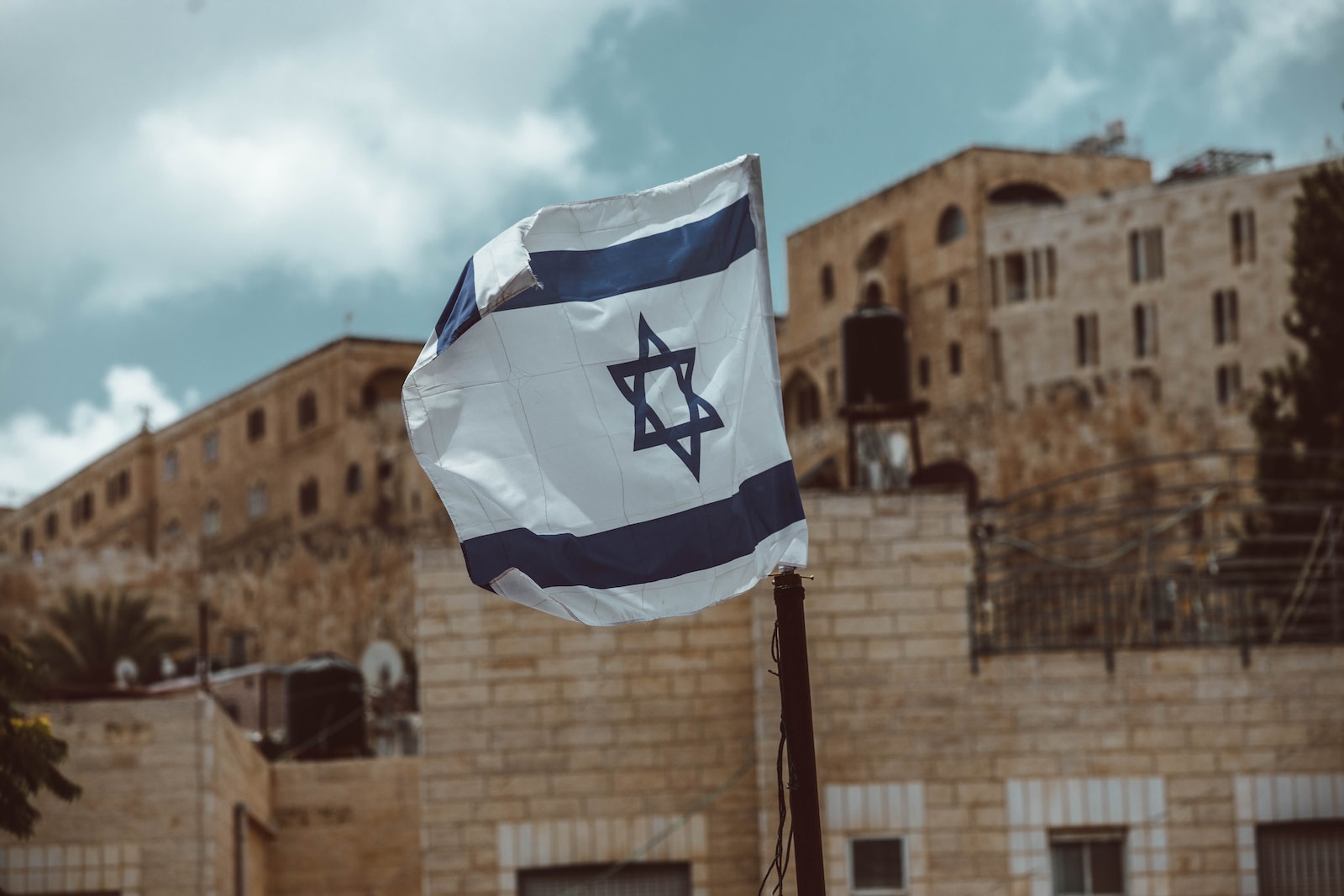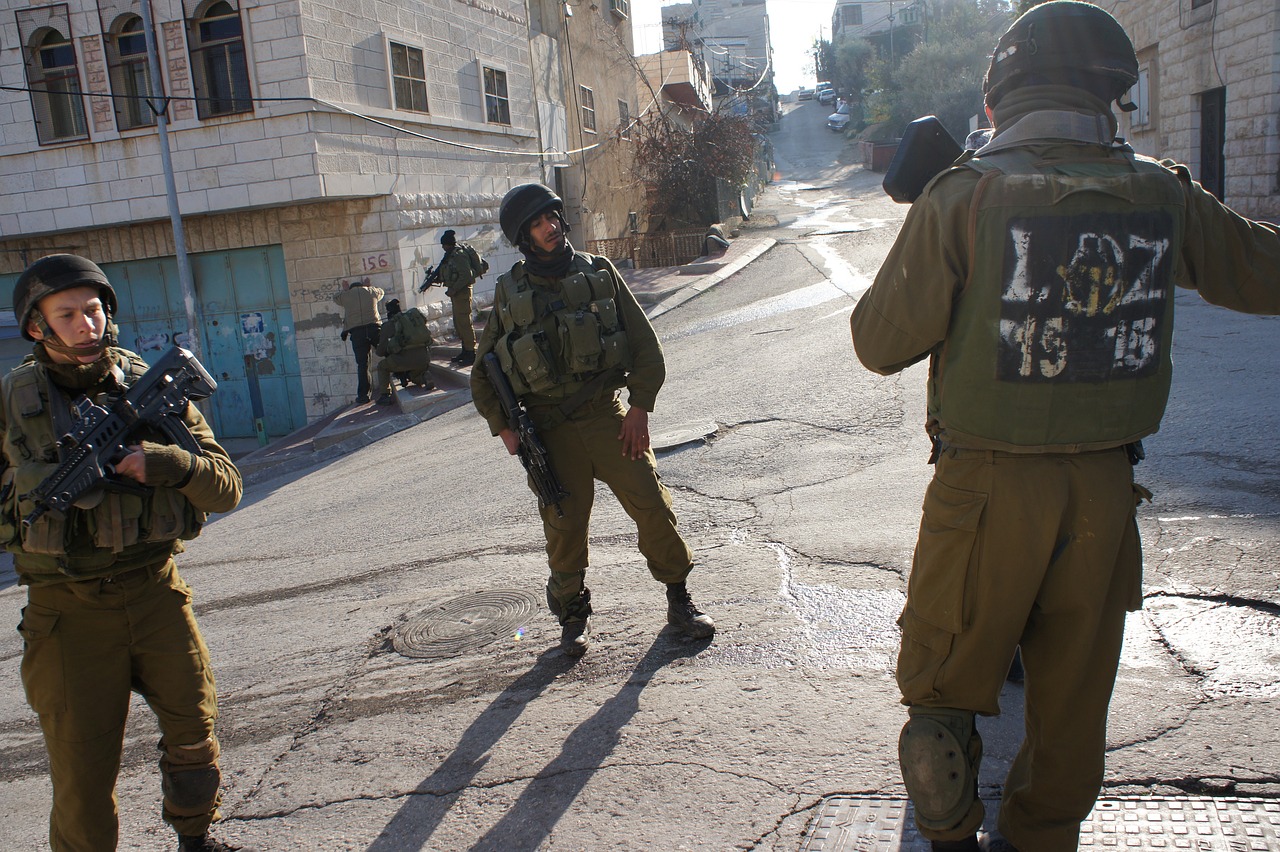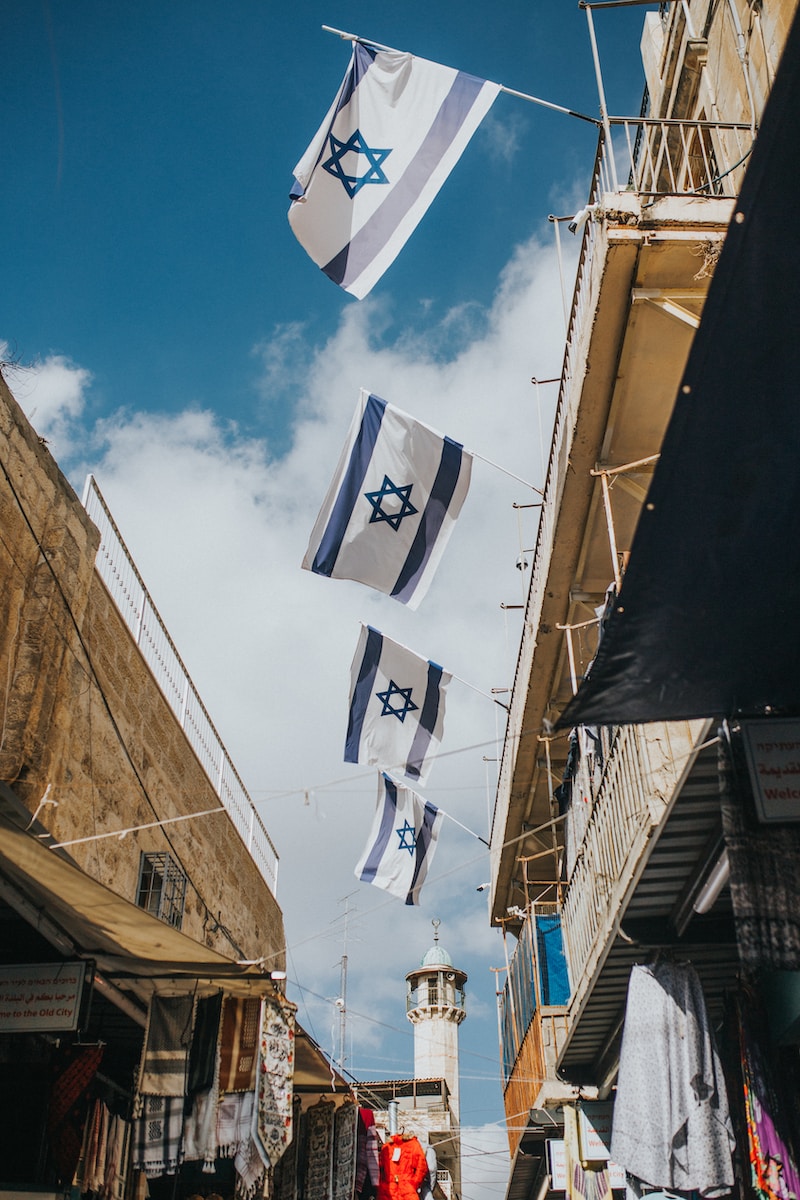Introduction: Iraq’s Missile Attacks on Israel during the Gulf War
During the Gulf War in 1991, Iraq launched a series of missile attacks on Israel, aiming to provoke Israeli involvement and potentially weaken the international coalition led by the United States.However, Israel made a remarkable decision not to retaliate against these missile attacks, which played a crucial role in their survival during the conflict. The interception of some missiles by the U.S.-deployed Patriot missile defense system further contributed to Israel’s miraculous escape.
Israel’s decision not to retaliate against Iraq’s missile attacks was not an easy one.The attacks were meant to provoke Israel into action and potentially divide the Arab participants in the coalition against Iraq. However, Israel recognized the importance of maintaining the unity of the coalition and the need to focus on the broader objectives of the war.Retaliation could have jeopardized the stability of the coalition and potentially escalated the conflict. The encouragement and diplomatic efforts of the United States played a crucial role in convincing Israel to exercise restraint and refrain from military action. Israel’s decision not to retaliate demonstrated their strategic thinking and their commitment to the coalition’s objectives.
Background of Iraq’s Missile Attacks on Israel
The Gulf War was a conflict between Iraq and an international coalition led by the United States, triggered by Iraq’s invasion of Kuwait. The war aimed to liberate Kuwait from Iraqi control and protect the stability of the region. As part of their strategy, Iraq launched a missile campaign against Israel, targeting cities like Tel Aviv and Haifa. These attacks were intended to provoke Israeli involvement and potentially weaken the coalition by dividing the Arab participants. Iraq hoped that Israel’s retaliation would alienate Arab countries from the coalition, thereby undermining its effectiveness.
The missile attacks posed a significant threat to Israel’s security and civilian population. The possibility of chemical warheads on the Iraqi missiles raised fears of mass casualties and devastation. Israel had to take measures to protect its citizens and respond to the attacks in a manner that would not compromise the coalition’s objectives. The situation required careful navigation and strategic decision-making on the part of Israeli leaders.
Israel’s Decision Not to Retaliate
Israel’s decision not to retaliate against Iraq’s missile attacks was a strategic move aimed at preserving the unity and objectives of the U.S.-led coalition against Iraq. Retaliation by Israel could have jeopardized the coalition’s stability and potentially escalated the conflict. The encouragement and diplomatic efforts of the United States played a crucial role in convincing Israel to exercise restraint and refrain from military action.
By choosing not to retaliate, Israel demonstrated its commitment to the broader objectives of the war and the stability of the coalition. Retaliation could have potentially divided the coalition by alienating Arab participants who were already hesitant about Israel’s involvement in the conflict. Israel’s decision showcased its diplomatic maturity and its ability to prioritize the collective goals over immediate retaliation.
Furthermore, Israel understood that retaliation might have triggered a spiral of violence and instability in the region. It recognized the importance of maintaining a united front against Iraq and working towards a peaceful resolution of the conflict. Israel’s restraint not only contributed to the overall success of the coalition but also prevented further escalation and potential loss of innocent lives.
Impact on the West Bank
During the Gulf War, numerous missile strikes targeted the West Bank, but remarkably, no deaths were reported in this region. The fear of potential chemical warheads on the Iraqi missiles heightened the anxiety among the civilian population. However, the effectiveness of Israel’s civil defense measures, including the distribution of gas masks and early warning systems, helped protect the population. Despite the destruction caused by the missile strikes, the absence of casualties in the West Bank was a testament to Israel’s preparedness and resilience.
The missile attacks on the West Bank had a significant impact on the daily lives of the residents. The constant threat of incoming missiles forced people to seek shelter and disrupted normal routines. However, the absence of casualties demonstrated the effectiveness of Israel’s civil defense measures and the resilience of the population. The distribution of gas masks and early warning systems played a crucial role in saving lives and minimizing the impact of the attacks.
The experience of the West Bank during the Gulf War highlighted the importance of preparedness and the need for effective civil defense measures in times of conflict. It also showcased the ability of the Israeli authorities to mobilize resources and protect their citizens during times of crisis. Despite the challenging circumstances, the West Bank managed to withstand the missile attacks without any reported deaths, a testament to the resilience and strength of the region’s inhabitants.
Unexplained Events and Miraculous Escapes
Amidst the missile attacks, several unexplained events occurred, adding to the miraculous nature of Israel’s survival. Two missiles disappeared during the attacks and have never been found, leaving behind a mystery. Another missile struck a garbage dump in Israel but did not explode, defying expectations. Additionally, a missile landed just a few feet away from a gas station but miraculously did not explode, potentially averting a devastating incident. The absence of any claims taking credit for preventing these strikes adds to the enigma surrounding these events.
The unexplained events that occurred during the missile attacks on Israel added an element of mystery to the already remarkable survival of the country. The disappearance of two missiles without any trace has puzzled experts and remains an unsolved mystery. Despite extensive efforts to locate them, these missiles have never been found, leaving room for speculation and theories.
The incident where a missile struck a garbage dump but failed to explode defied expectations and showcased the unpredictability of war. In a conflict filled with destruction and devastation, the fact that a missile failed to detonate in such a scenario is truly remarkable. Similarly, the missile that landed near a gas station without exploding is a testament to the series of fortunate events that occurred during the Gulf War.
These unexplained events highlight the inexplicable nature of war and the unpredictable outcomes that can arise. They also serve as a reminder of the countless lives that were spared and the miraculous escapes that occurred during this period of conflict.
Missiles Missing Targets and Thrown Off Course
Some of the Iraqi Scud missiles missed their intended targets and landed in the Mediterranean Sea. One particular missile was thrown off course by strong winds, diverting its trajectory. The potential devastation that could have occurred if these missiles had hit their intended targets highlights the incredible fortune that Israel experienced during the Gulf War.
The missile attacks during the Gulf War were not always accurate, and several missiles missed their intended targets. Some of these missiles ended up in the Mediterranean Sea, causing minimal damage and posing no immediate threat to populated areas. This was a stroke of luck for Israel, as it prevented potential casualties and further destruction.
One particular missile being thrown off course by strong winds is another example of the unpredictable nature of war. The diversion of the missile’s trajectory potentially saved lives and prevented significant damage. It serves as a reminder of the factors beyond human control that can influence the outcome of military operations.
The fact that these missiles missed their targets and in some cases, were thrown off course, highlights the element of chance that played a role in Israel’s survival during the Gulf War. The combination of strategic decision-making, effective defense systems, and fortunate events contributed to Israel’s miraculous escape from the devastating impact of the missile attacks.
Conclusion: Israel’s Miraculous Survival and Unexplained Events
Israel’s decision not to retaliate against Iraq’s missile attacks, coupled with the interception of some missiles by the Patriot missile defense system, played a pivotal role in Israel’s survival during the Gulf War. The unexplained events, including the disappearance of missiles and their failure to explode in certain instances, add to the miraculous nature of Israel’s experiences during the conflict. These events serve as a testament to the resilience and series of miraculous military victories that Israel has achieved throughout its history.
Israel’s survival during the Gulf War was nothing short of miraculous. The decision not to retaliate, despite the provocation, demonstrated Israel’s commitment to the broader objectives of the war and the stability of the coalition. The interception of some missiles by the Patriot missile defense system further contributed to Israel’s survival and showcased the effectiveness of international cooperation.
The unexplained events that occurred during the missile attacks added an element of mystery to Israel’s survival. The disappearance of missiles, their failure to explode in certain instances, and the series of fortunate events that occurred highlighted the unpredictable nature of war. These events serve as a reminder of the countless lives that were spared and the resilience of the Israeli people.
Israel’s survival during the Gulf War is a testament to the country’s strength, strategic thinking, and ability to overcome challenging circumstances. It serves as a reminder of the numerous military victories that Israel has achieved throughout its history and the miraculous nature of its survival in times of conflict.
#GulfWar #Iraq #Israel #MissileAttacks #Miracle #DivineIntervention #MilitaryEncouragement #UnexplainedEvents #GulfWarStories #ProtectiveForces #Survival #ExtraordinaryIncidents #DivineProtection #ConflictRealities #HistoricalAnomalies #UnexplodedMissiles #MysteriousOccurrences



